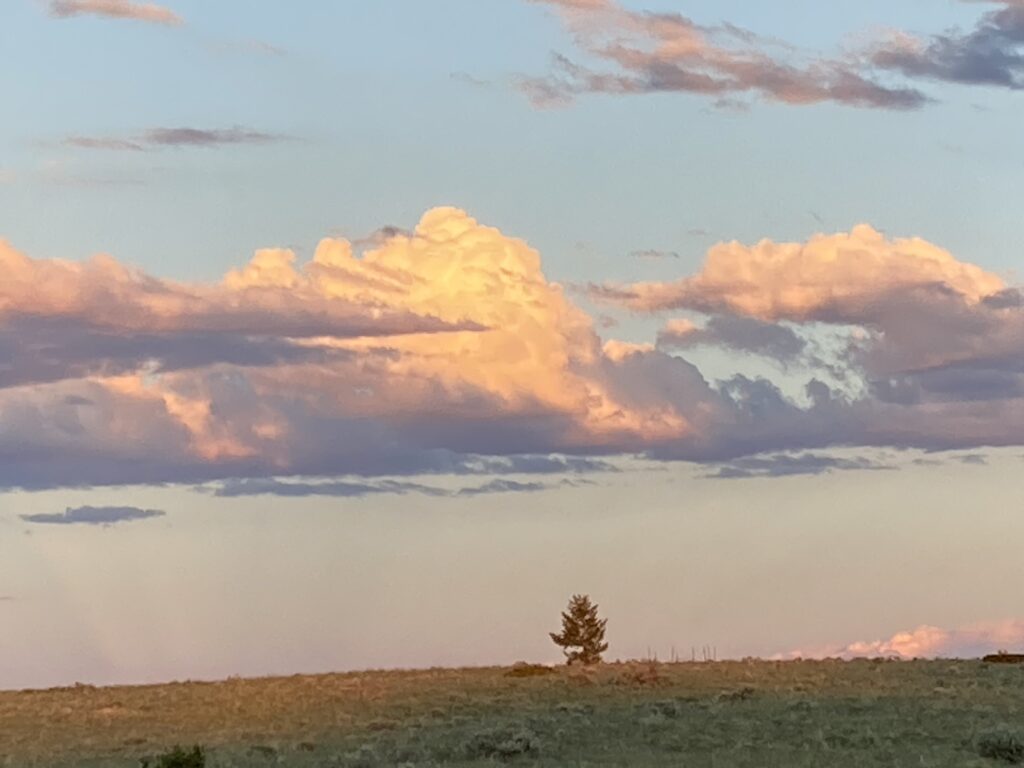Some folks were born on third base and some folks have to hit a triple to get on third base.
Watchdog Alert: Latest From The Russia-Ukraine War

Bible Rebel continues to keep a watchdog’s eye on events around the world, but don’t be overly troubled, remember the words of our Lord in Matthew 24:6-8.
“And ye shall hear of wars and rumours of wars: see that ye be not troubled: for all these things must come to pass, but the end is not yet.
For nation shall rise against nation, and kingdom against kingdom: and there shall be famines, and pestilences, and earthquakes, in divers places.
All these are the beginning of sorrows.“
Here’s the latest from the Russia-Ukraine conflict:
Germany Allows Ukraine to Strike Inside Russia
From MSN/Time – Germany has authorized Ukraine to use long-range weapons supplied by Berlin to strike targets inside Russia. This marks a significant shift in Western support for Ukraine as the war continues.
Trump Warns Putin Over Escalation
From The Standard – U.S. President Donald Trump has warned Russian President Vladimir Putin that he is “playing with fire” by refusing to engage in ceasefire talks with Kyiv. Trump criticized Putin for launching some of the deadliest drone and missile attacks since the war began.
Russia Prepares New Offensives
From MSN/ABC News – Ukrainian President Volodymyr Zelenskyy has stated that intelligence reports indicate Russia is preparing new offensive operations. He emphasized that there is no sign Moscow is seriously considering peace or diplomacy.
Russia Launches Largest Drone Attack Yet
From MSN/Zee Business – Russia carried out its biggest drone assault on Ukraine, marking a sharp escalation in the air war. Over three days, Russia launched approximately 900 drones at Ukraine, signaling a continued intensification of hostilities.
Rethinking The Rapture: N.T. Wright’s ‘Farewell to the Rapture’

Did you know that belief in the Rapture is actually a minority view among Christians worldwide?
While belief in the Rapture is widespread among evangelical Christians, especially in the United States, it is not universally accepted across all Christian traditions.
Many Catholic, Orthodox, and mainline Protestant believers and churches do not hold to a Rapture theology, instead focusing on Christ’s second coming as a singular, visible event rather than a secret removal of believers.
Prominent New Testament scholar N.T. Wright sums it up well in his 2001 essay, Farewell to the Rapture:
“The American obsession with the second coming of Jesus — especially with distorted interpretations of it — continues unabated. Seen from my side of the Atlantic, the phenomenal success of the Left Behind books appears puzzling, even bizarre. Few in the U.K. hold the belief on which the popular series of novels is based: that there will be a literal “rapture” in which believers will be snatched up to heaven, leaving empty cars crashing on freeways and kids coming home from school only to find that their parents have been taken to be with Jesus while they have been “left behind.” This pseudo-theological version of Home Alone has reportedly frightened many children into some kind of (distorted) faith.”
I agree. There is much about the modern picture of the Rapture that doesn’t make sense and doesn’t fit with a sound and comprehensive scriptural view.
The main ‘proof text’ for the version of the Rapture depicted in the fictional Left Behind novels is 1 Thessalonians 4:16-17 – “For the Lord himself will come down from heaven, with a loud command, with the voice of the archangel and with the trumpet call of God, and the dead in Christ will rise first. After that, we who are still alive and are left will be caught up together with them in the clouds to meet the Lord in the air. And so we will be with the Lord forever.”
One of the first questions that should be asked when reading any section of scripture is, “How would the the folks to whom it was originally addressed have understood it in their historical, cultural, and religious context?”
Again, N.T. Wright points out in his essay:
“Paul’s mixed metaphors of trumpets blowing and the living being snatched into heaven to meet the Lord are not to be understood as literal truth, as the Left Behind series suggests, but as a vivid and biblically allusive description of the great transformation of the present world of which he speaks elsewhere.“
So how should we understand 1 Thessalonians 4:16-17? What are some other possible interpretations of this passage?
Well be looking in detail at those questions as we continue with this ‘Rethinking The Rapture’ series, so stay tuned. In the meantime I highly recommend that you read Wrights short essay.
Rethinking The Rapture: Introduction
Watchdog Alert: Two SCOTUS Religious Liberty Cases

Bible Rebel keeps a watchdog’s eye on the U.S. Supreme Court and the impact it’s decisions make on our religious liberties so our readers can stay informed.
Oklahoma Religious Charter School Case
From ABC News – In a rare 4-4 deadlocked ruling, the Supreme Court blocked Oklahoma from creating the nation’s first taxpayer-funded religious charter school. The case revolved around whether public funds could be used to support a Catholic virtual school, St. Isidore of Seville. The court upheld the Oklahoma Supreme Court’s ruling, stating that such funding would violate the Establishment Clause of the First Amendment.
Catholic Charities Bureau v. Wisconsin LIRC
From Religious Liberty TV – This case examines whether a religious nonprofit can be denied a tax exemption if its activities are deemed not religious enough. The Wisconsin Supreme Court ruled that Catholic Charities Bureau’s work was primarily charitable and secular, rather than religious, and therefore not eligible for exemption. The Supreme Court is set to hear arguments on whether this violates the First Amendment’s Free Exercise Clause.
The Tyranny Of Trump Hatred

These are interesting times we live in, especially here in the good old U.S.A.
When I say I’m “America First,” I mean that in a political sense—it’s a patriotic statement, not a faith creed. My ultimate allegiance is to Almighty God, and my only hope and confidence is in the return of my Lord and Redeemer, Jesus Christ, and the promise of everlasting life in God’s universal kingdom.
The reason I can express my support for ideas like “Make America Great Again” and “America First,” and why I can wholeheartedly pray for and advocate for President Trump’s success in his pro-America agenda, is because I know without a doubt that worldly politics and governance are temporary, transient, and fraught with human frailty. The City and Country I look forward to is eternal and perfect—my citizenship is in heaven.
But I scratch my head sometimes lately, wondering at the claims by some that supporting President Trump is akin to being in a “cult” and following an evil despot. We’ve all heard it: “Trump is a Hitlerian dictator, and those who voted for or supported him in any way are brainwashed Gestapo or Brown Shirts.”
If there was ever a God-inspired form of governance, it’s our American Constitutional Republic with its brilliant system of checks and balances. It’s troubling that so many have abandoned belief in that system and in their fellow Americans—all because of “Orange Man Bad.” How shallow and dishonest.
It seems to me that if Trump is a tyrant, then the people who are actually subject to his “tyranny” are those who allow their hatred of him to rule over their hearts and minds.
If Trump is a dictator, then those whose every thought is dictated in a negative way by whatever Trump does or says on a particular day are his subjects.
If Trump is a despot, then it’s the folks who are bent on smearing him, opposing his every action, and trying to destroy him and his family 24/7/365 who are the willing slaves of their obsession with him.
There is no cult more insidious and dangerous than the cult of hatred for one man: Donald J. Trump.
Freedom from this self-imposed Trump Derangement Syndrome slavery can only be found in trusting God, reclaiming common sense, and using the appropriate tools for change—rather than encouraging hate and violence and bending the knee to fear and disinformation.
Watchdog Alert: Israel And Palestine

Bible Rebel continues to monitor important news and events from around the world so we can bring the latest information to our readers.
Fatal Shooting Outside D.C. Jewish Museum
From MSNBC – Two Israeli Embassy staffers, Yaron Lischinsky and Sarah Milgrim, were shot and killed outside the Capital Jewish Museum in Washington, D.C. The suspect reportedly shouted “Free Palestine” during the attack, raising concerns about rising tensions.
Israel Issues Evacuation Warning for Parts of Gaza
From AL Monitor – The Israeli army has ordered evacuations in 14 neighborhoods of northern Gaza as it intensifies its military operations. The move comes amid international condemnation and humanitarian concerns, with the UN struggling to distribute aid in the region.
Italy-Israel Defense Agreement Faces Legal Challenge
From The Palestine Chronicle – A group of Italian lawyers has filed a formal complaint against the automatic renewal of Italy’s military cooperation agreement with Israel. They argue that continuing the agreement violates Italy’s constitutional principles and international obligations, given the ongoing conflict in Gaza and the West Bank.
Israel’s Latest Military Offensive Kills 85 in Gaza
From PBS – Despite mounting international criticism, Israel has launched a new military offensive in Gaza, resulting in at least 85 Palestinian deaths. The offensive has led to further humanitarian concerns, with aid deliveries struggling to reach those in need.
Watchdog Alert: Spiritual Awakening, Biden, And More

Political Leaders Pray for Biden
From Crosswalk – Former President Joe Biden has been diagnosed with an aggressive form of prostate cancer, prompting prayers from leaders across the political spectrum.
Baptize California Movement
From Crosswalk – A pastor in California claims the U.S. is on the verge of a spiritual awakening, with plans for a massive baptism event.
Brazilian Evangelicals and Politics
From Christianity Today – Evangelical supporters of former Brazilian President Jair Bolsonaro continue to back him despite accusations of an assassination plot.
Decline of Christianity in the U.S.
From Pew Research – Pew Research study suggests that the decline of Christianity in the U.S. has slowed and may have stabilized at around 62% of the population.
G3 Ministries Controversy
From Christianity Today – Pastor Josh Buice resigned after his church uncovered divisive online behavior, leading to the cancellation of an upcoming conference.
Rethinking The Rapture: More Questions

According to the standard Evangelical/Dispensational Rapture doctrine, the Rapture occurs before the apocalyptic events of the Book of Revelation begin to unfold.
So why is the Rapture not explicitly mentioned in Revelation, not even once?
Why would the most shocking, impactful, and monumental event (supposedly) in the Bible and in human history; an event that miraculously and suddenly removes millions of people from the earth triggering the beginning of a worldwide apocalypse, not be mentioned at all in the book of the Bible called the Apocalypse?
Yes, I’m aware of the interpretations of Revelation 4:1-2, where John is called up to heaven, supposedly being a symbolic reference to the Rapture. I’m not buying it though. That kind of handling of the Word is a perfect example of reading a preconceived notion into scripture rather than letting scripture speak for itself.
To speculate that Revelation 4:1, where John heard a voice that said, “Come up hither, and I will shew thee things which must be hereafter…” is referring to the Rapture seems to me a weak, almost desperate, argument. And the same for the ‘missing church’ argument that claims the absence of the Greek word for ‘church’, ekklesia, after Revelation chapter 3 implies a Rapture occurs somewhere between chapter 3 and 4.
The Rapture is not mentioned at all in the Book of Revelation. Why?
More to come in this ongoing series, “Rethinking The Rapture”.
Watchdog Alert: Latest News

1 Peter 5:8 – “Be sober, be vigilant; because your adversary the devil, as a roaring lion, walketh about, seeking whom he may devour.” (KJV)
Suspect in Palm Springs fertility clinic bombing identified
From CNN – The person killed in the Saturday bomb explosion outside a fertility clinic in Palm Springs, California, is a 25-year-old from Twentynine Palms, the FBI said Sunday.
“The subject had nihilistic ideations,” Akil Davis, the FBI’s assistant director in charge of the Los Angeles field office, said at a Sunday news conference. “This was a targeted attack against the IVF facility.”
“We are fairly confident that Mr. Bartkus is our primary subject, our primary suspect, a person of interest,” he said, adding that the suspect was not previously known to the FBI. Authorities identified Bartkus’ “nihilistic” beliefs through “some of the posts that he’s made online, some of the comments made in his manifesto that we’re combing through right now,” Davis said.
Bible Rebel addresses the false gods of nihilism and anti-natalism in the ‘Death Row Letters‘ series.
Israel has launched “extensive” new ground operations in Gaza
From The Times of Israel – The Israel Defense Force announced Sunday that it has begun “broad” ground operations in several areas of the Gaza Strip, as part of the opening phase of a new major offensive. Palestinian officials reported more than 100 people killed over the past 24 hours in Israeli strikes.
“Over the past day, IDF troops in the Southern Command, both the standing army and reserves, began a broad ground operation throughout the northern and southern Gaza Strip, as part of the start of Operation Gideon’s Chariots,” the military said in a statement.
Continue to follow Bible Rebel for Watchdog Alerts about world events – because we as people of faith are to be aware and watchful.